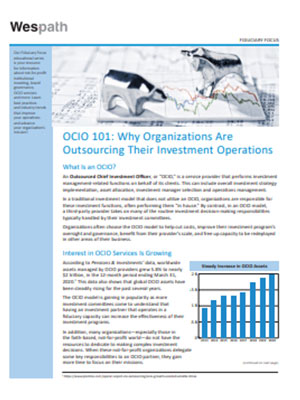
OCIO 101: Why Organizations Are Outsourcing Their Investment Operations
Learn MoreWe have updated our website with a new look and made it simple to navigate on any device.
We will continue to add more valuable information and features. Please let us know how we are doing.
P.S. For plan sponsors and plan participants, we have a new look for you too. Check out the Wespath Benefits and Investments website.